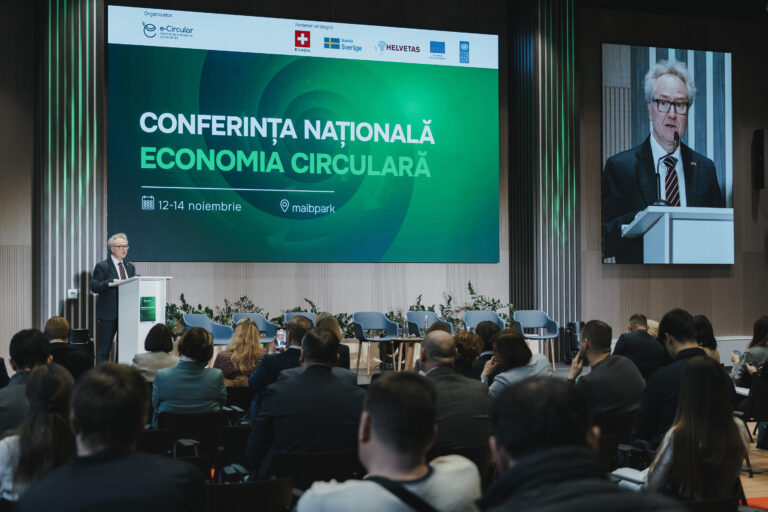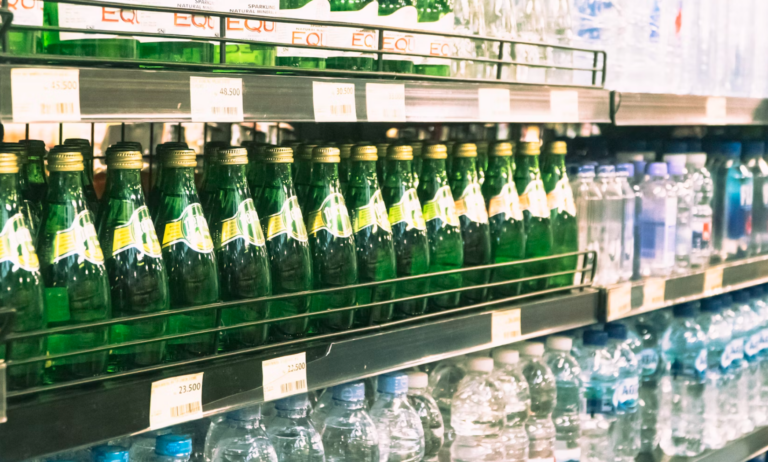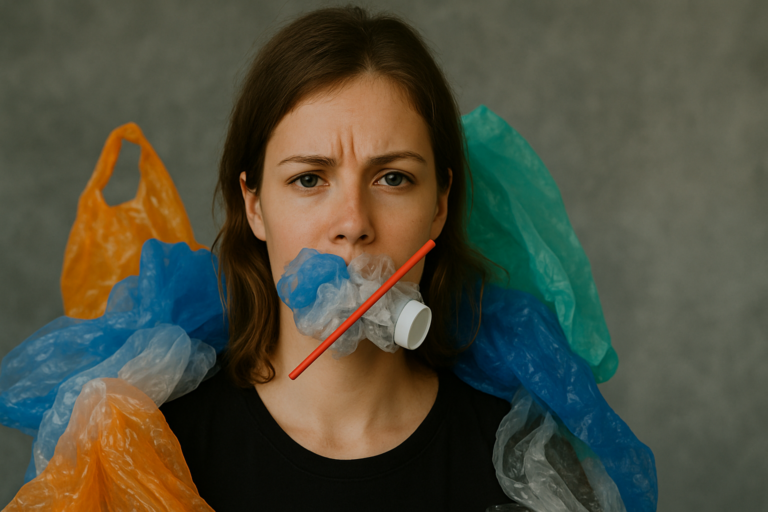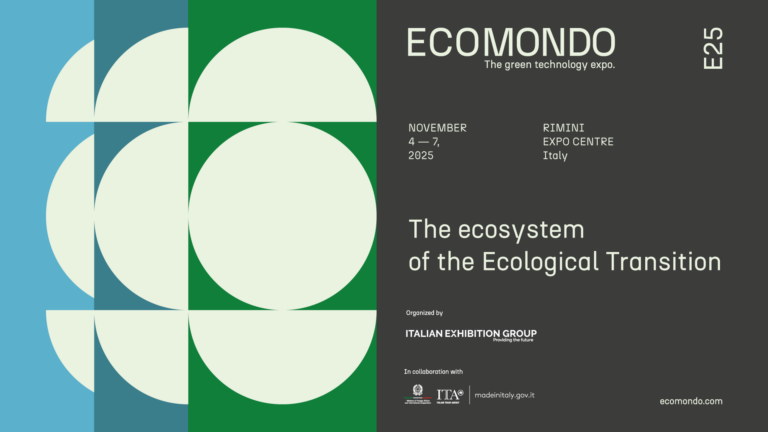New research confirms that plastic production is directly linked to plastic pollution
Details
According to one research recently published in Science Advances – Global producer responsibility for plastic pollution, it is attested direct correlation between plastic production and plastic pollution, such that every 1% increase in consumer goods companies' plastic production is associated with a 1% increase in plastic pollution in the environment. The study finds that fast-moving consumer goods companies contribute disproportionately more to the problem than household and commercial companies.
The study marks the first precise measurement of the global relationship between plastic production and pollution.
The research, led by scientists from more than 10 different universities in the United States, Australia, the Philippines, New Zealand, Estonia, Chile, Sweden, Canada and the United Kingdom, found that 56 global companies are responsible for more than half of commercial plastic pollution. The Coca-Cola Company was responsible for 11% of commercial waste, followed by PepsiCo (5%), Nestlé (3%), Danone (3%) and Altria/Philip Morris International (2%). The most important companies identified produce food, beverages or tobacco products.
The five-year review used audit data provided by the global movement BreakFreeFromPlastic from 1,576 audit activities in 84 countries. Brand audits are citizen science initiatives where volunteers carry out waste collection and document the brands found in the collected waste. Over five years, more than 200,000 volunteers have sent data through Break Free From Plastic or 5 Gyres' TrashBlitz.
The close relationship between plastic production and pollution by consumer goods companies, in geographical areas with very different waste management systems, suggests that reducing plastic production in the consumer goods sector is a viable solution to reduce global plastic pollution . As world leaders negotiate a global plastics treaty at INC-4 this month in Ottawa, Canada, this research serves as a tool to support an ambitious legally binding treaty that includes provisions on corporate responsibility , prioritizing measures to reduce plastic production and promoting reuse and refill systems.
Co-author quotes:
"When I first saw the relationship between production and pollution, I was shocked. I wanted to throw up, it was my worst nightmare come true. It means manufacturers big and small are toeing the line. Despite all the things the big brands say they are doing, we don't see any positive impact from their efforts. But on the other hand, it gives me hope that fast moving consumer goods companies reducing their plastic production and moving towards more sustainable and reusable products would have a strong positive impact on the environment.”
- Dr. Lisa Erdle, Director of Science and Innovation, 5 Gyres Institute
“This scientific study affirms what activists and communities affected by plastic pollution have been saying for years: the more plastic is produced, the more plastic ends up in the environment. It's that simple. Once again, plastic polluters like The Coca-Cola Company, PepsiCo and Nestlé continue to fail in their voluntary commitment to reduce their plastic footprint. We need a legally binding global treaty that mandates significant reductions in plastic production and prevents corporations from flooding the planet with single-use plastic.” - Sybil Bullock, Associate Campaign Director, Break Free From Plastic
“The research identifies the top 56 multinational companies that contribute to global commercial plastic waste. Previous studies have ranked countries like the Philippines, Indonesia, Sri Lanka, Bangladesh, Nigeria, etc. among the first sources of plastic waste in the ocean. This led to a social media narrative blaming poor countries for global plastic pollution, ignoring the fact that around the 1960s global companies flooded developing countries with cheap, single-use plastics, replacing traditional biodegradable materials and sustainable reuse and refill systems that, in the case of the Philippines, date back to the 16th century. The current study instead focuses on the role of companies and global plastic production.” - Dr. Jorge Emmanuel, Adjunct Professor and Research Faculty Member, Institute of Environmental and Marine Sciences and College of Engineering and Design, Silliman University
"This research provides the first quantification of the contribution of global manufacturers to commercial plastic pollution. The findings suggest that single-use packaging is a significant contributor to commercial plastic pollution. This data can help identify ways to address plastic production and reduce plastic waste entering the environment." - Dr Kathy Willis, postdoctoral fellow at CSIRO, Australia's national science agency
About Break Free From Plastic (BFFP)
BreakFreeFromPlastic is a global movement that aims for a future without plastic pollution. Since its launch in 2016, more than 2,000 organizations and 11,000 individual supporters from around the world (including the E-Circular association from the Republic of Moldova) have joined the movement to demand massive reductions in single-use plastics and promote lasting solutions to the plastic pollution crisis. BFFP member organizations and participating individuals share values of environmental protection and social justice, working together through a holistic approach to bring about systemic change. This means tackling plastic pollution along the entire plastics value chain – from extraction to disposal – focusing on prevention rather than remediation, providing effective solutions. www.breakfreefromplastic.org
Related articles
Cea de-a III-a ediție a Conferinței Naționale „Economia Circulară în Republica Moldova”, organizată în perioada 12–14
La data de 26 septembrie, Ministerul Mediului în parteneriat cu A.O. Centrul de instruire și consultanță
Este timpul pentru acțiuni decisive: societatea civilă cere un Tratat Global ambițios care să pună capăt
La Geneva, se negociază începînd cu 5 august un acord ONU împotriva deșeurilor din plastic. Blocajul:
Ne-am obișnuit să aruncăm, am uitat să reparăm, să reutilizăm și să prelungim durata de viața
Centrul de Instruire și Consultanță „E-Circular” anunță lansarea apelului pentru contribuții științifice în cadrul Conferinței Naționale
Reacțiile la studiul publicat recent de Agenția Franceză pentru Siguranța Alimentelor, Mediului și Sănătății Ocupaționale (ANSES)
De ani de zile, marcăm simbolic Ziua Mediului, vorbim despre reducerea poluării cu plastic, venim cu
Modelul economic actual este construit în mare parte pe un sistem liniar de tip „extrage-produce-aruncă”, în
A.O. Centrul de instruire și consultanță E-Circular în calitate de partener media anunță companiile interesate din










